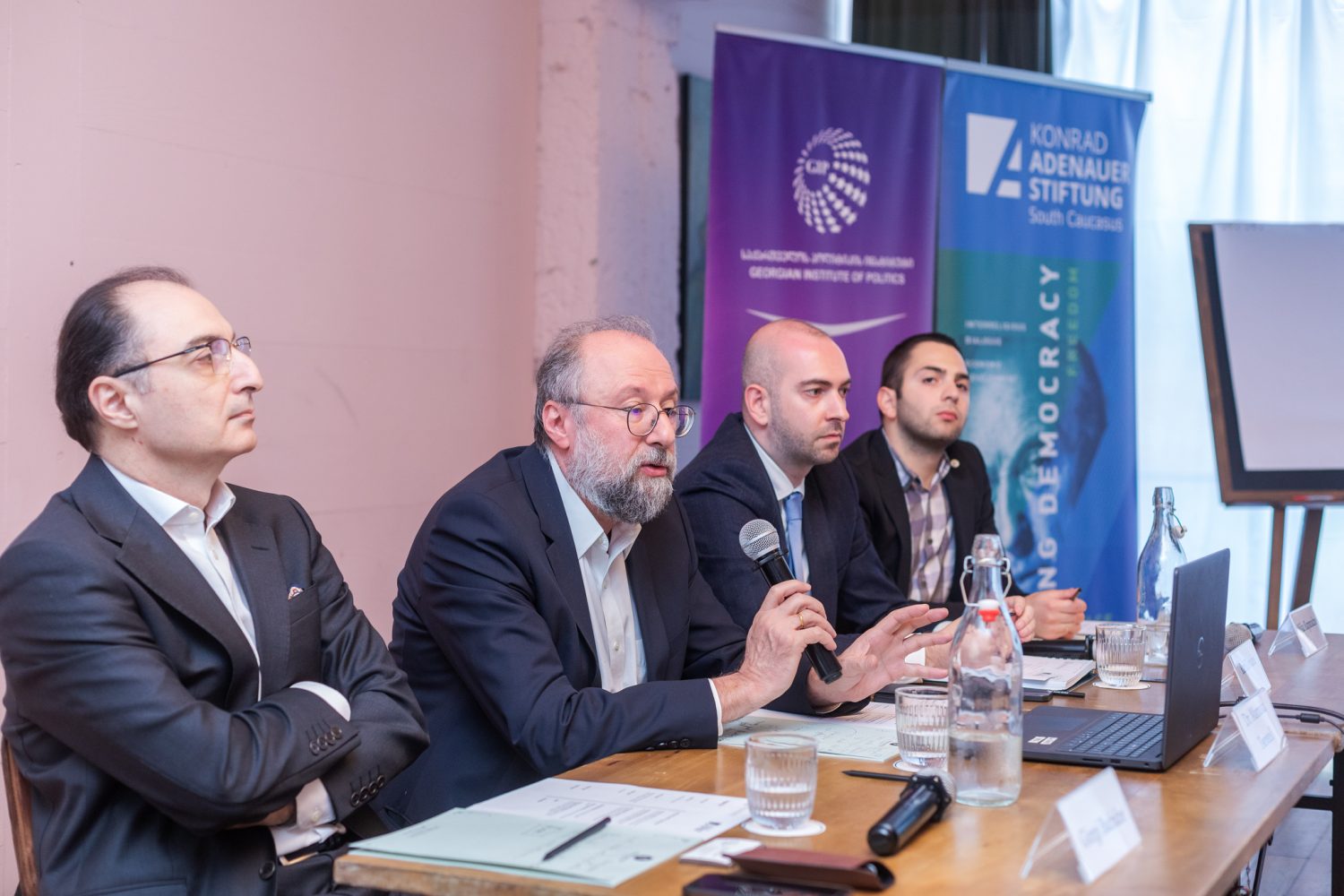On June 2, GIP and KAS South Caucasus Office held a discussion, “Georgia and Black Sea-Caspian Trade and Energy Connectivity,” based on the draft policy paper presented by Dr. Mamuka Tsereteli. The event took place as part of the KAS-GIP Foreign Policy Talks series.
Connectivity has particular relevance for the land-locked economies of the South Caucasus and Central Asian countries, which are facing significant economic development challenges and need better access to international markets for their major export commodities and products. The war in Ukraine further altered the context for connectivity projects in the region, boosting it to the top of European and global policy agendas. Georgia could use its potential as a transit state to increase its role in regional development and strengthen links with Western partners in support of Tbilisi’s EU and Euro-Atlantic aspirations.
The discussion focused on the following questions:
➤ How have the recent wars impacted connectivity development in the Black Sea region?
➤ What is the position of Georgia in the transit routes between the Caspian and the Black Sea?
➤ How could Georgia strengthen its role as a transit country? What are the challenges that could limit the country’s potential?
Opening remarks were delivered by Stephan Malerius, Head of the Konrad-Adenauer-Stiftung in the South Caucasus, and Renata Skardžiūtė-Kereselidze, Deputy Director of the Georgian Institute of Politics. The agenda featured a presentation by Dr. Mamuka Tsereteli, Senior Fellow for Eurasia and the American Foreign Policy Council and the Central-Asia Caucasus Institute, followed by inputs and discussion by Giorgi Badridze, Senior Fellow, GFSIS, and Nika Kapanadze, Researcher at the PMC Research Center.
Rati Devadze, Transport and Logistics Policy Advisor at the USAID Economic Governance Program, Deloitte, moderated the discussion with the participation of over fifty experts, journalists, academia, public officials and diplomatic corps.


